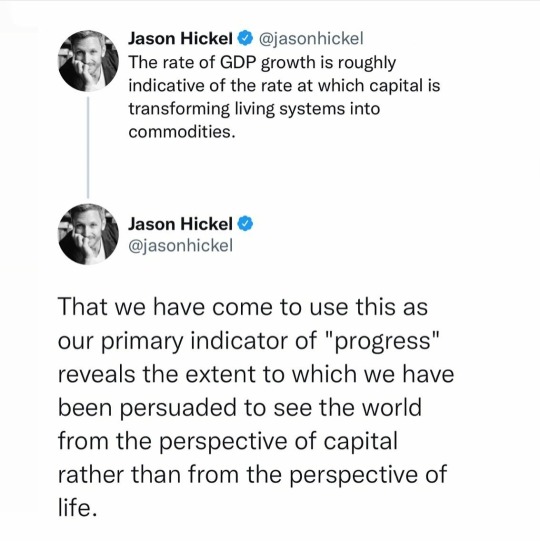#gdp
Text
Many citizens in the Global South need better access to material and energy resources to meet their basic needs and improve their lives – which would even entail GDP growth. However, measuring GDP growth alone tell us little about whether increased production and consumption has improved access to basic resources for the material welfare of those in need, or been captured. Research suggests that especially in places of high deprivation, a focus on wellbeing and meeting human needs is more efficient (than a GDP-growth focus) and does so within planetary boundaries. Although the Global North has experienced huge levels of economic growth since the 1970s and 1980s, this has not translated into increases in welfare because of stagnating wages and rising inequality and because consumption has mostly been spent on positional goods by higher income groups, not to meet human needs. Arguably, the positive relationship between economic growth and welfare from the start of industrialisation leading up to the 1970s, in Global North countries, was institutional – in other words it was due to political rules and institutions – as post-war public welfare was achieved in the political terrain of policy-making, in political struggles. Collective provisioning systems (health care centres, public transport, garbage disposal, as well as access to shelter, sanitation and minimum floor area) have historically been more important to the attainment of wellbeing than average income or total energy consumption.
From “Decent work and economic growth” to “Sustainable work and economic degrowth”: a new framework for SDG 8
24 notes
·
View notes
Photo
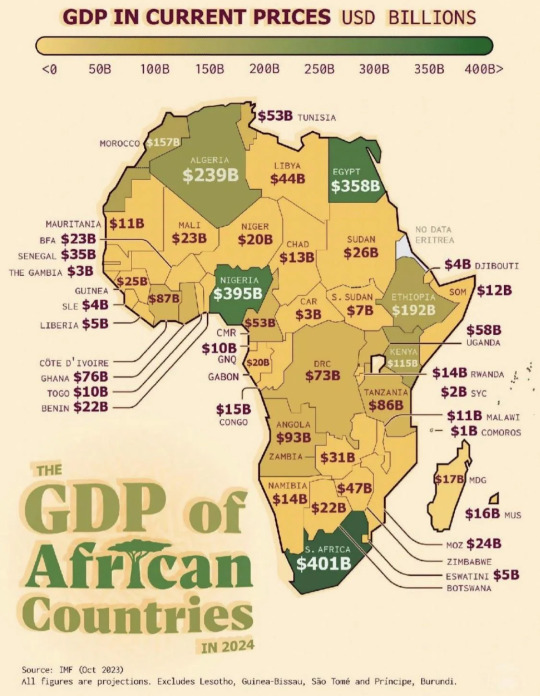
GDP of African Countries, 2024.
171 notes
·
View notes
Photo
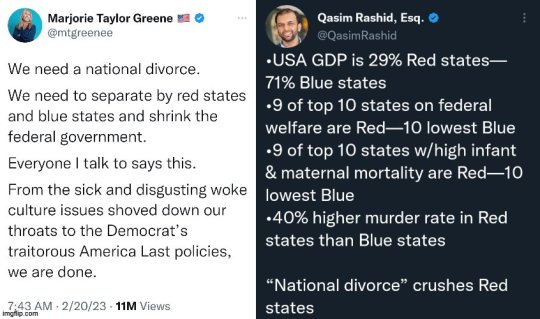
Moscow Marge.
#Marjorie Taylor Greene#Moscow Marge#MoscowMarge#National Divorce#Civil War#Qasim Rashid#Red States#Blue States#GDP#welfare#infant#maternal#mortality#murder#murder rate#Gross Domestic Product#Woke#Democrat#Democrats#Democratic#traitor#sedition
344 notes
·
View notes
Text

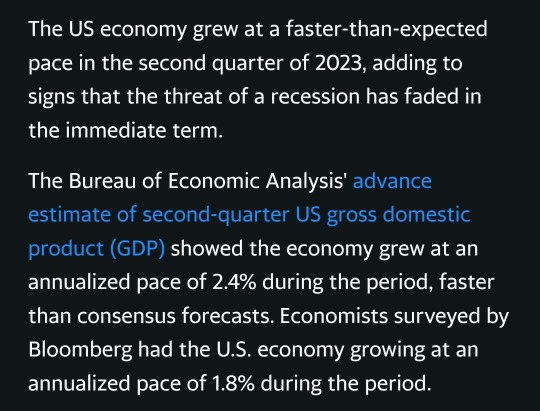
I guess this means more nudes from the desperate and brainless GOP.
114 notes
·
View notes
Text
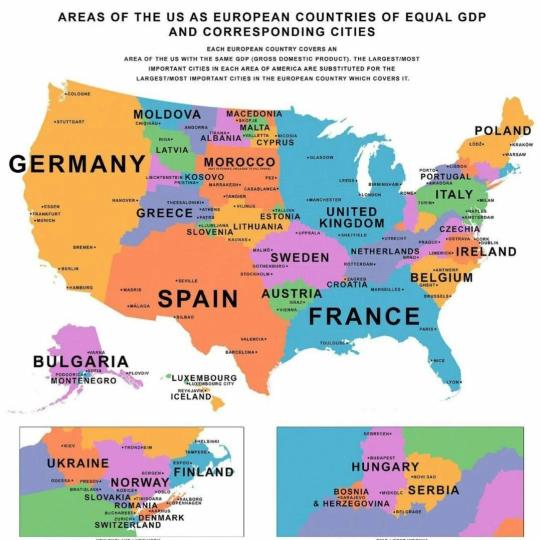

Bulgarian Alaska? Hello??? Proud Bulgarian colony!
Also my condolences to the State budget of Alaska!
92 notes
·
View notes
Text
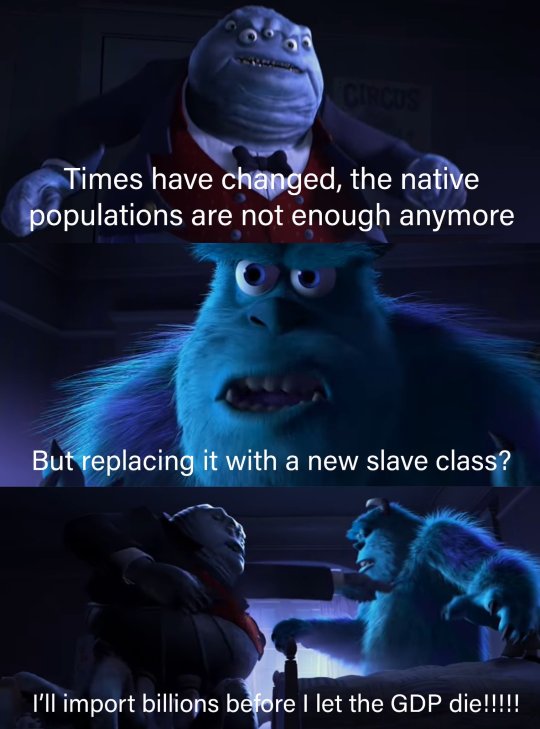
#meme#memes#shitpost#shitposting#humor#funny#lol#satire#funny memes#funny humor#funny meme#comedy#dark humor#politics#illegal immigration#gdp#irony#joke#parody
34 notes
·
View notes
Quote
The term national wealth has only arisen as a result of the liberal economists’ passion for generalisation. As long as private property exists, this term has no meaning. The “national wealth” of the English is very great and yet they are the poorest people under the sun.
Engels, 1844
342 notes
·
View notes
Text
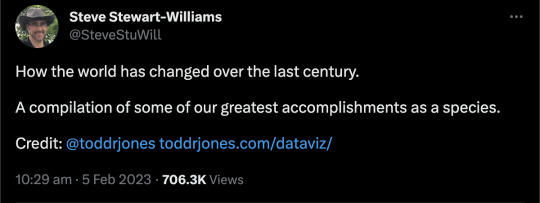
#human progress#human development#life expectancy#GDP#gross domestic product#education#water#sanitation#child mortality#child death#religion is a mental illness
88 notes
·
View notes
Text


PURPLE PUNCH
SOLSTICE CANNABIS
#purple punch#larry OG#grand daddy purp#gdp#sfv OG#big bud#purple urkle#life#love#trippy#drugs#smoke#weed#marijuana#cannabis#420#710#blunts#joints#bong rips#girls who rip bongs#girls who smoke#girls who smoke weed#weed strains#weedsociety#explore#expand#exist#music#lifestyle
292 notes
·
View notes
Link
We extract 30 tons of materials each year to support the consumption of the average American. That’s 82kg of fuels, minerals, crops, and timber taken from the land per day to feed, clothe, comfort, and entertain each person. It's more than anyone’s fair share, and more than the planet can sustain.
But since material use and GDP are intimately linked, physical shrinking would probably bring economic shrinking. Thus, degrowth must involve reorganising society to meet people’s basic needs regardless of what happens with GDP, so the economy can decelerate justly, without the suffering recessions bring.
This sometimes causes confusion. To be clear: degrowth is not about decreasing GDP. And it’s not about reducing every person’s individual resource use (poor people might need more resources to meet their needs). Instead, it's the hypothesis that radically reducing environmental damage and carbon emissions – and making other changes in the direction of sustainability and justice – entails producing and consuming less overall. That reduction needs to focus on today’s sources of overconsumption, primarily by rich countries.
Take a hypothetical moratorium on new fossil fuel extraction. Ending fracking, drilling, and coal mining might be our best shot at saving the stable climate, and it would likely mean wealthy nations like the UK would not be able to keep expanding their economies year after year.
The latest report from the Intergovernmental Panel on Climate Change cites studies showing that ‘only a GDP non-growth/degrowth or post-growth approach’ can limit warming to 2°C without deploying risky or imaginary ‘negative emissions technologies’. That two-degree target is the maximum global temperature increase to which human societies are thought to be capable of adapting, but there’s no guarantee that we’ll be fine if the planet warms that much. The less warming, the better our chances.
Similarly, the 2021 Nature article '1.5 °C degrowth scenarios suggest the need for new mitigation pathways' reported results from modelling pathways for stabilising the climate. It found that ‘degrowth scenarios minimize many key risks for feasibility and sustainability compared to technology-driven pathways’. Scientists are telling us that continued economic growth puts humanity’s future in question and that pinning our hopes on maintaining a growing economy by way of tech that has yet to be realised is fraught with risk. So whether degrowth sounds unreasonable or unrealistic, the facts remain. Unless we want to take a roll of the dice with our future, we need a quick transition to a smaller economy that runs on low-carbon energy.
1K notes
·
View notes
Photo

Total Gross Domestic Product of each continent, 2021 estimates
by Thessiz
105 notes
·
View notes
Text
Fifty years ago, the System Dynamics group at the Massachusetts Institute of Technology had a stark message for the world: continued economic and population growth would deplete Earth’s resources and lead to global economic collapse by 2070. This finding was from their 200-page book The Limits to Growth, one of the first modelling studies to forecast the environmental and social impacts of industrialization. ...
For its time, this was a shocking forecast, and it did not go down well. Nature called the study “another whiff of doomsday”. ...
Although there’s now a consensus that human activities have irreversible environmental effects, researchers disagree on the solutions — especially if that involves curbing economic growth. That disagreement is impeding action. It’s time for researchers to end their debate. ...
Governments have entire departments devoted to ensuring that GDP always points upwards. And that is a problem, say post-growth researchers: when faced with a choice between two policies (one more green than the other), governments are likely to opt for whichever is the quicker in boosting growth to bolster GDP, and that might often be the option that causes more pollution. ...
Research can be territorial. But green-growth and post-growth scientists need to see the bigger picture. Right now, both are articulating different visions to policymakers, and there is a risk this will delay action.
21 notes
·
View notes
Link
NE AZ EMBEREKKEL FIZETTESSÉK MEG!
45 notes
·
View notes
Text

Democrats are getting things done. The economy is improving with Democratic policies.
Republicans want to destroy this positive growth to spite Biden.
252 notes
·
View notes
Text
What’s that?
The GDP has gone up?
That’s….
Yes. Great! Superb!
…
There’s one problem.
This doesn’t mean SHIT to most people!
And it changes absolutely nothing for 99.9% of the population!
#dougie rambles#personal stuff#gdp#economics#voodoo#bullshit#trickle down economics#hogwash#anti capitalism#anti consumerism#leftism#shitpost#vent post
8 notes
·
View notes
